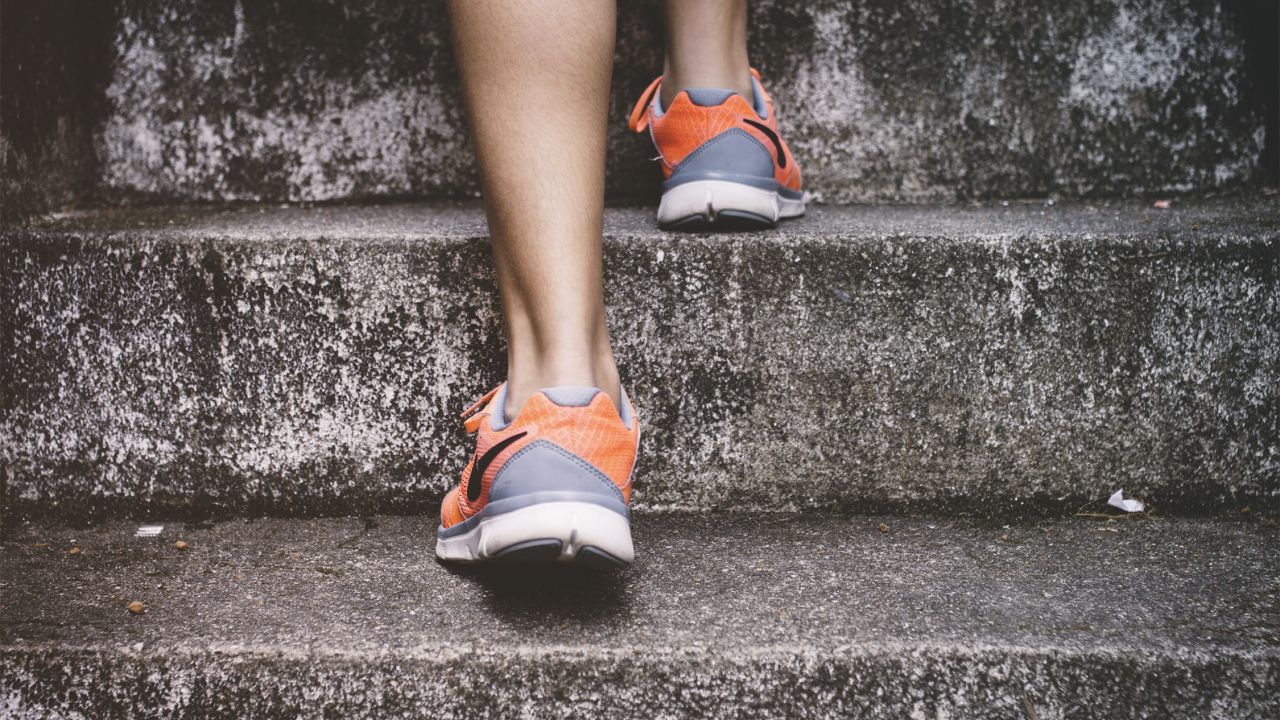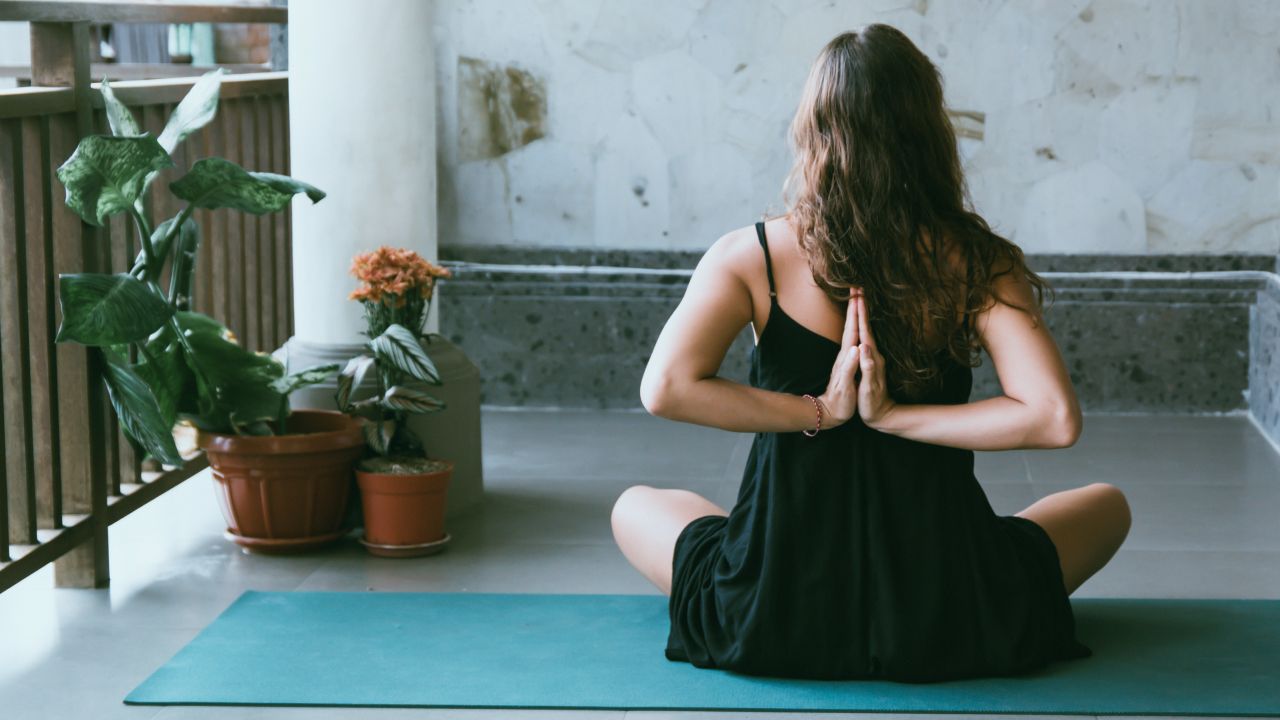
7 tips to get healthy habits to stick without getting stressed
Cram more fruits and veg into your meals. Drink more water (no, coffee doesn’t count). Put meditation on your ever-growing to-do list. Add 7km to your weekly workout rotation (walk, bike, run). Jot down your feelings in a journal.
The list of "shoulds' for a healthier lifestyle continues to grow. It might sound contradictory, but working on your wellbeing can quickly become another source of stress.
But it doesn’t have to be. Change for the better is a process. Like training for a marathon or learning a new language, improving your wellbeing has to be approached realistically and progressively to work. So sure, you won’t get results overnight, but over time small gains add up.
The trick is sticking with it long enough that the new habits you want to incorporate into your day-to-day become automatic. Read on for our best tips to help you build wellbeing into your routine.
How to create healthy routines and work wellbeing into your day-to-day

@elleirva via Unsplash
1. Make a master list.
Get started by writing down all of your desired wellbeing habits in one place. Then jot down the benefits you think you’ll get from them. Next, rank them in order of which potential habits will help you the most in your day-to-day.
And finally, get started with the top of your list. For example, if you’re having trouble staying focused at work because you sleep poorly, committing to an evening meditation to help you get more rest is probably a better way to invest your time than rising with the sun for a run in the park.
One way to make juggling your goals for new habits easier to face without feeling overwhelmed is with a journal or a planner.
At Foundations, when it comes to managing goals and habits, we’re big fans of the bullet journal—for more on bullet journals, check out this piece at the New York Times. And because everyone gets off track occasionally, it’s a good idea to plan to revisit your master list a few times a year to check in on your progress and to see if your goals have changed. Because it’s not always easy but you’ll feel better later if you…
2. Come clean.
It’s easier to take on new habits if you’re aware of your current routines. Be brutally honest with yourself about what you truly have time for and actually feel like doing. "Shoulds" don’t have great staying power. So check your motivation and make it as easy as possible to keep your commitment. If that means getting an accountability buddy to keep you in line, get one.
Also, for the love of coffee, if you’re not a morning person, don’t schedule your new habit to happen before dawn on weekday mornings. Whatever you do, don’t set yourself up for disappointment with overly ambitious expectations for the ten minutes you have between meetings on Tuesdays. And when it comes to being overly ambitious with your wellbeing goals…
3. Start small (so it’s harder to fail).
Don’t divide your attention and energy among too many new habits, especially not early on, when you’re first building your routine. According to James Clear for Entrepreneur, there’s a scientific argument for taking on one new habit at a time––research shows you’re 2 to 3 times as likely to practice your new habit if you create a specific plan to focus on one (and only one) goal at a time.
So your best bet is to stay single-minded until a new habit becomes automatic (which Psychology Today says can take up to 66 days) and above all, don’t overdo it. We get it. In the beginning, it’s hard to resist jumping in with both feet. But whether or not you can resist going a little overboard the first few days, it’s important to keep your commitment small and manageable and when you’re feeling under the weather, tired, or deeply distracted…
4. Give yourself a break.
When you need it, take time off and don’t get discouraged if you get busy and miss a day, and somehow a week goes by without you practicing your new wellbeing habit. It’s helpful to remember that everyone loses momentum sometimes. Remember that the point here is to feel better and get back on track, not to spend your limited free time feeling guilty about what might have been.
You’re better off giving yourself the benefit of the doubt and recommitting to whatever you can manage.
Building a new habit involves using your willpower to override those impulses to sleep in and skip your workout. But, according to best-selling non-fiction author Nir Eyal, as cited in Psychology Today, breaks can help restore your motivation for long-term goals.
That said, it might be a good idea to reevaluate your situation to figure out what went wrong. Did you try to take on too much too soon? Can you break your goal down into more manageable chunks? Give yourself a break and recommit to something smaller, like 5 minutes a day instead of 10. Keep going and don’t forget to…
5. Keep track.
Schedule your habits for a specific time and jot down your wins and fails. It’s hard to know what’s working (and what isn’t) if you have no record to clue you in to what’s going on. Like your favorite teacher from school, data can be friendly if you pay attention and adjust your behavior accordingly.
And if your goals include meditation, journaling, or gratitude, Foundations can help. We’ll even make remembering easier with alerts to remind you. And once you’ve mastered the art of monitoring your progress…
6. Cluster habits together.
As you add more habits over time, cluster goals that go well together (for example, earlier bedtime + evening meditation + 8 hours of rest + waking up earlier for a faster commute). Science supports this.
In an article for Quartz, Stanford University professor and behavioral scientist B.J. Fogg calls this "habit stacking" and says that linking a new behavior to a previously established habit makes it easier to work into your routine. Just make sure to give yourself plenty of margin to…
7. Celebrate wins of all sizes.
Did you finally get back into the swing of things after a week away on vacation? That’s worth celebrating, just like your first week-long streak running, meditating, or building your resilience with a wellbeing app.
Remember that even a 1% daily improvement means you’ll be 37 times better than you were at the start in a year’s time.
Progress is progress, and positive psychology research (as published in the Harvard Business Review) has shown that celebrating your wins will take you much farther than focusing on your setbacks. So when something goes right, treat yourself in a way that’s meaningful to you—whether that means a weekday coffee or meal with friends, an extra episode of that show you’ve been streaming, or taking a long, relaxing walk to gather your thoughts.
What do you do to make new habits stick? Share your tips with us at foundations@koahealth.com.